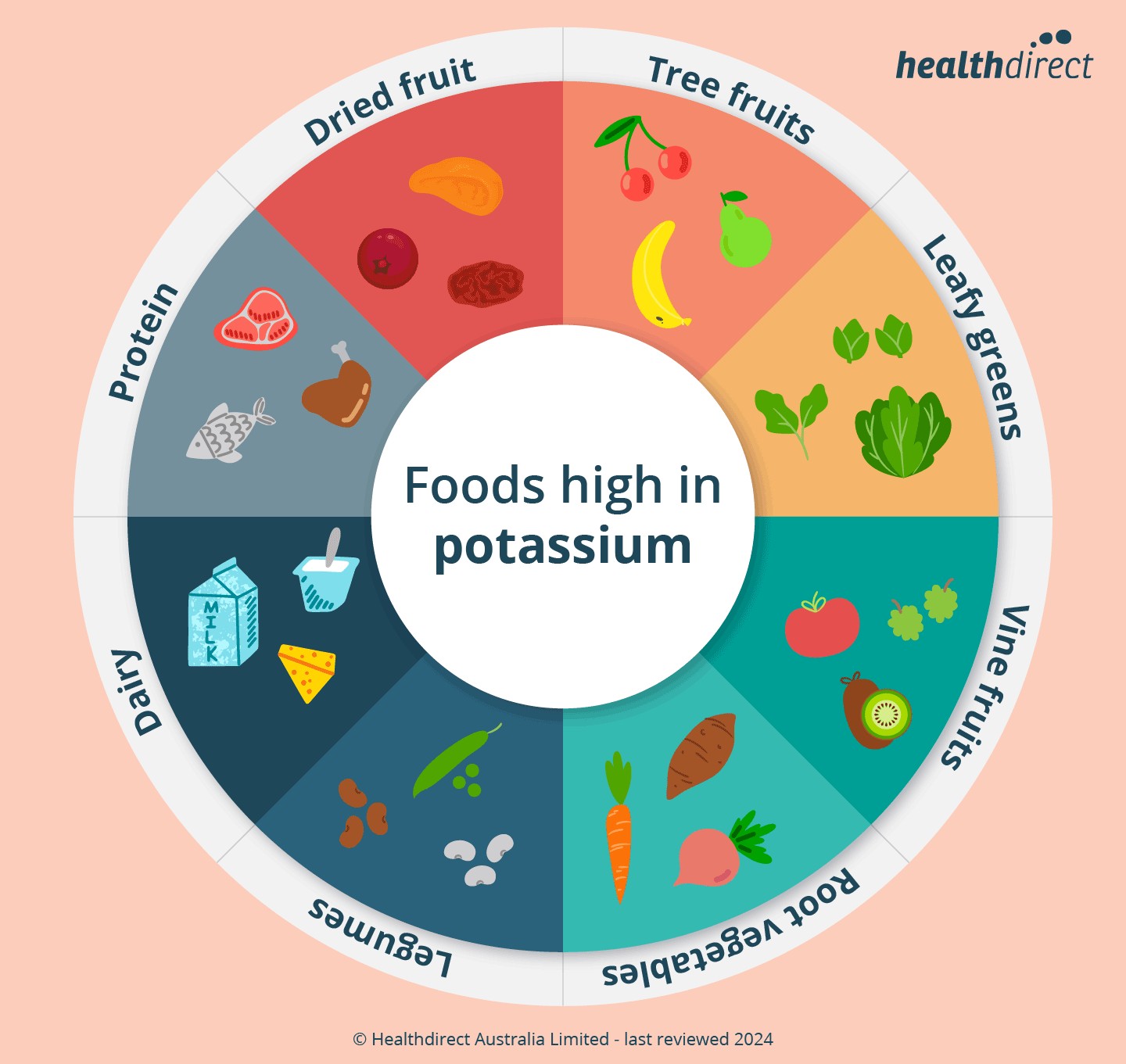Potassium is an essential mineral that plays a crucial role in numerous bodily functions. It’s vital for maintaining healthy nerve function, muscle contractions, and heart rhythm. Furthermore, potassium aids in transporting nutrients into cells and removing waste products. Understanding the best food sources for potassium is crucial for overall health and well-being.
Understanding Potassium and Its Importance
Potassium is an electrolyte that helps regulate fluid balance, nerve signals, and muscle contractions. It works closely with sodium to maintain these functions. Maintaining adequate potassium levels is essential for preventing health issues such as high blood pressure, muscle weakness, and heart problems. Most people can obtain sufficient potassium through their regular diet.
Diverse Dietary Sources of Potassium
Potassium is widely available in various foods, making it accessible for most individuals to meet their daily requirements through diet alone.
Fruits Rich in Potassium
Several fruits are excellent sources of potassium. These include:
-
Apricots and Dried Fruits: Dried apricots, in particular, are a concentrated source of potassium.
 Dried apricots, a concentrated source of potassium, are a nutritious snack.
Dried apricots, a concentrated source of potassium, are a nutritious snack. -
Tree Fruits: Bananas, oranges, avocados, and apples are popular and convenient options.
-
Vine Fruits: Tomatoes, cucumbers, zucchini, eggplant and pumpkin also contribute to your daily potassium intake.
Vegetables High in Potassium
Vegetables offer a variety of potassium-rich choices:
- Leafy Greens: Spinach, kale, and silverbeet are not only packed with potassium but also offer a range of other essential nutrients.
- Root Vegetables: Potatoes (especially with the skin on), sweet potatoes, and carrots are excellent sources.
- Legumes: Beans and peas provide a substantial amount of potassium along with protein and fiber.
Other Notable Sources
Besides fruits and vegetables, other food groups also offer potassium:
- Dairy: Milk and yogurt are good sources of potassium and calcium.
- Meat and Poultry: Chicken, beef, and pork contain potassium.
- Fish: Halibut, tuna, cod, and snapper are good sources of potassium and omega-3 fatty acids.
Dietary Considerations and Potassium Intake
While most people can obtain enough potassium from their diet, certain conditions and medications can affect potassium levels. For example, diuretics can lower potassium levels, while kidney disease can cause potassium to build up in the body.
If you have kidney disease or are taking medications that affect potassium levels, consult with your doctor or a registered dietitian to determine the appropriate potassium intake for you.
The Role of Potassium Supplements
For individuals who cannot obtain enough potassium through diet alone or have specific medical conditions, potassium supplements may be considered. However, it’s crucial to consult with a healthcare professional before starting any supplementation. High doses of potassium can be dangerous and may lead to heart problems.
Potassium and Salt Substitutes
Some salt substitutes contain potassium chloride instead of sodium chloride. While these can help reduce sodium intake, individuals with kidney problems or those taking certain medications should use them cautiously and consult with their doctor.
Monitoring Potassium Levels
If you are at risk of potassium deficiency or have medical conditions that affect potassium levels, regular monitoring is essential. A simple blood test can determine your potassium levels. Talk to your doctor about the frequency of testing based on your individual needs.
Conclusion: Optimizing Potassium Intake for Better Health
Ensuring adequate potassium intake is essential for maintaining overall health. By incorporating a variety of potassium-rich foods into your diet, you can support healthy nerve function, muscle contractions, and heart health. If you have concerns about your potassium levels, consult with your healthcare provider to determine the best course of action. A balanced diet, rich in fruits, vegetables, and other potassium-containing foods, is the best approach for most people.
